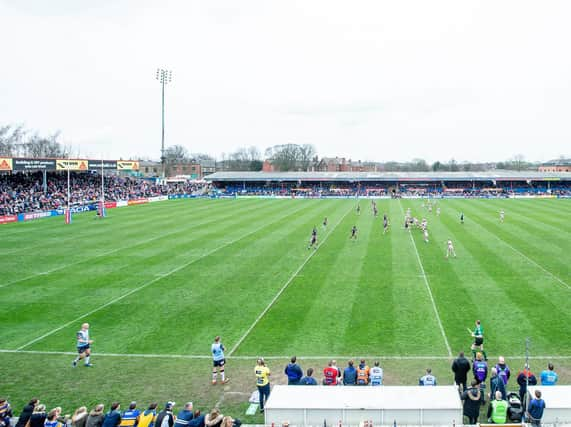Wakefield Trinity explain reasons for backing Super League's private equity proposal


A number of clubs, along with Trinity, were keen to accept the offer but they needed unanimous approval which was not forthcoming.
Carter admitted the bid wasn’t “perfect” but at least deserved the chance to further explored.
Advertisement
Hide AdAdvertisement
Hide AdHe told the Yorkshire Post: “Clearly we need investment into the sport to try and drive it. I talk about “investment” in inverted commas; there’s lots of ways of providing that investment whether it’s private equity or you go for debt to provide investment for growth.
“There were a lot of channels open to us and this is one that was on the table. As a club, we thought it was one that was worthy of further investigation.
“I don’t think the bid was by any means perfect but I felt it could be explored further.
“But we live in a democratic world and some clubs felt it wasn’t worthy of that. I respect that and can live with that.
Advertisement
Hide AdAdvertisement
Hide Ad“What we all encouragingly agree on is that we need to find a way of securing ‘investment’ into the sport so we can grow it. We can’t afford to stand still. If we do, we’ll die.”
Clubs will now have to stump up a £750,000 finders’ fee, equating to around £70,000 per club.
With the effects of Covid-19 and the prospect of a reduced broadcast deal from 2022, clubs are in agreement that more investment needs to come from somewhere.
Carter added: “We all knew about the finders’ fee and felt it was a road the majority wanted to explore.
Advertisement
Hide AdAdvertisement
Hide Ad“To give credit to one or two clubs, they were against it from the outset, but we knew that, and now we have to find the money from somewhere.
“Basic maths says that’s about £70,000 per club. It is a bitter pill to swallow but we didn’t know – when we started this – we were heading into a global pandemic. Still, even with the pandemic we did manage to attract an offer; there is some interest in sport at the minute and in rugby league.
“Looking on the bright side of it, there are people out there who want to get involved.”
Leeds Rhinos chief executive Gary Hetherington was one club boss who voted against the deal and explained: “It is a monumental decision for any sport to make and in the case of rugby league probably the biggest since 1895.
Advertisement
Hide AdAdvertisement
Hide Ad“And those who are making the decision are doing so knowing it will be their legacy for future club owners and leaders of the game at all levels, not just Super League. Private equity companies typically have cash available to invest in businesses where they can see potential for growth and a certainty of making a significant return on their investment.
“In return for their investment, they take a large slice of equity – or ownership – and management control and their primary focus is to generate as much cash return for the businesses and themselves as possible every year.
“So, any sport thinking of introducing private equity has to be prepared for the consequences, which of course, last forever. Often the company plans to exit the sport after, possibly, five years and it is up to them who they sell their equity stake too.
“So, a sport or business enters into a partnership with a company but is powerless to influence its successor when time suits the private equity company to sell.”
He added: “All clubs should be focused on making their own business bigger and better and on improving facilities and the gameday experience for fans.”